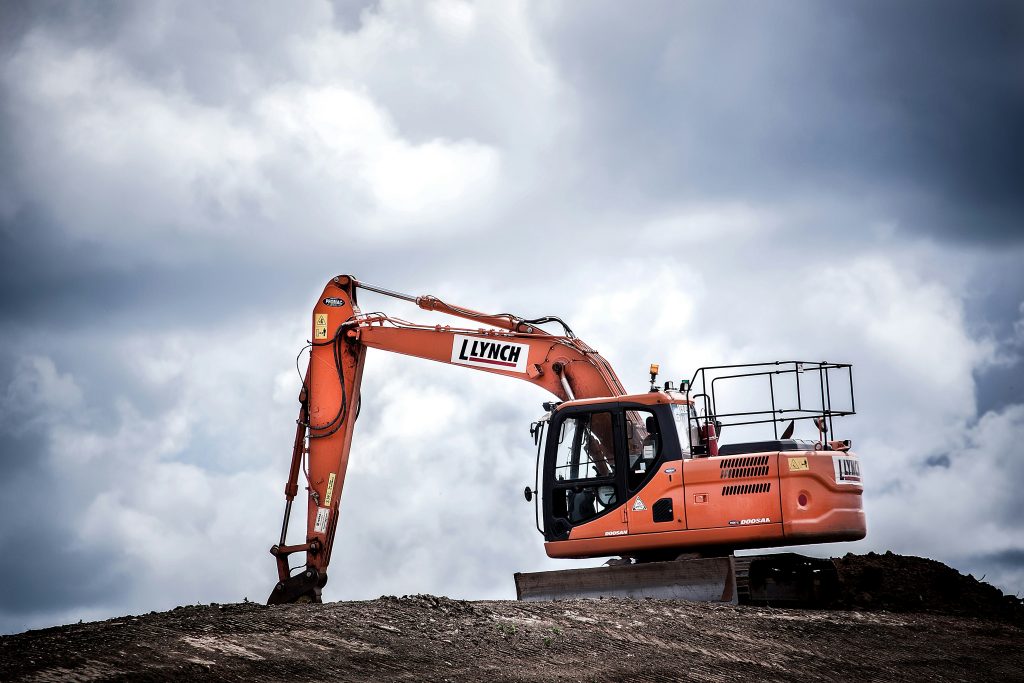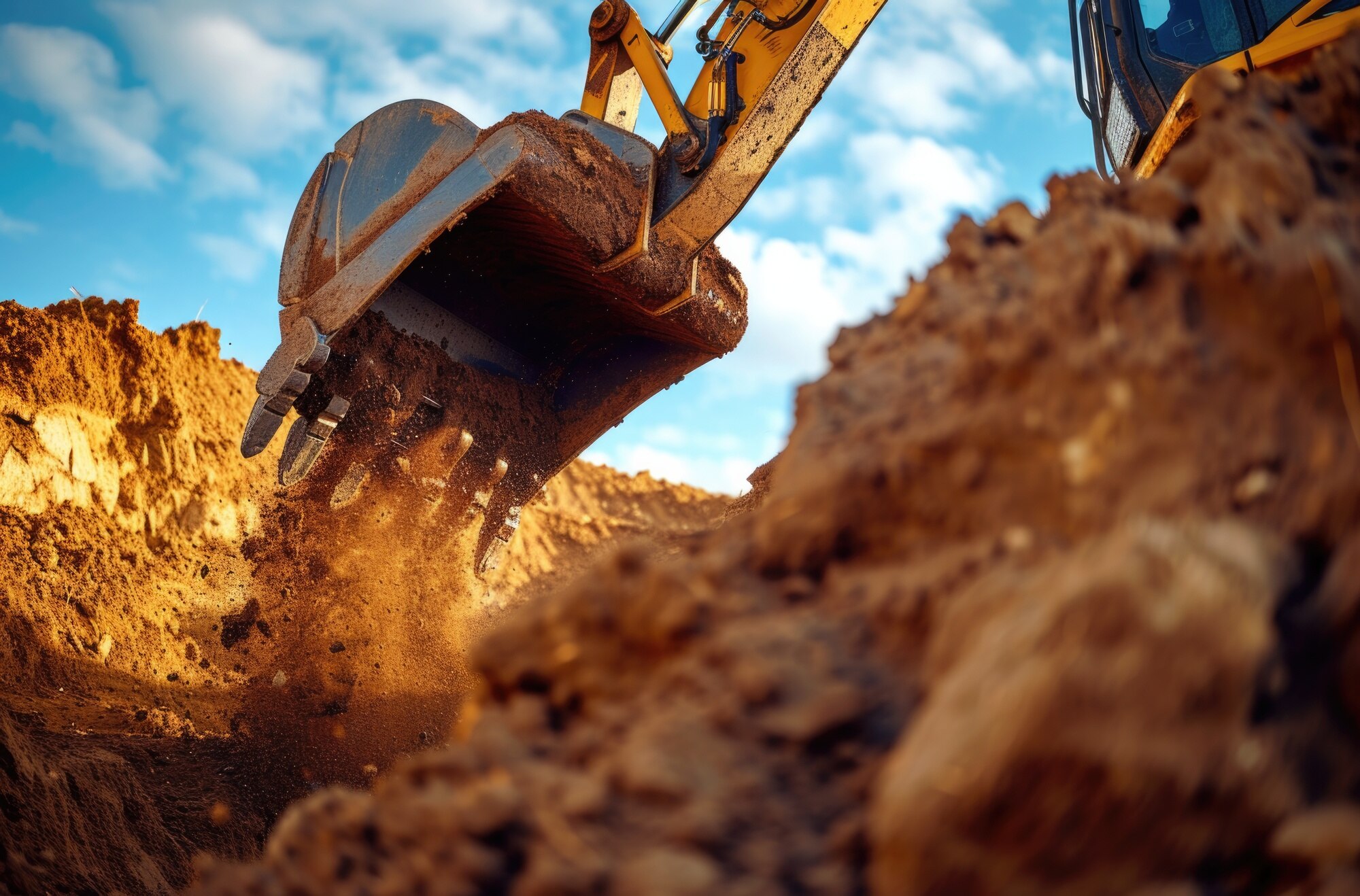Choosing the right earthworks contractor can make or break your project.
This decision impacts the success of your construction or excavation project.
Earthworks contractors play a crucial role. They handle tasks like excavation, grading, and site preparation. These tasks form the foundation of your project.
But how do you choose the right contractor?
This article provides a comprehensive guide. It will help you evaluate qualifications, experience, and services of potential contractors.
Whether you’re a project manager, a homeowner, or a property developer, this guide is for you. It will help you ensure a successful outcome for your project.

Understanding Earthworks and Their Importance in Construction
Earthworks is a critical phase in construction. It involves moving and processing soil and rock.
This process prepares the site for construction. It ensures the ground is level and stable.
Earthworks contractors use heavy machinery for this. They may use bulldozers, excavators, and graders.
The quality of earthworks can affect the entire project. It impacts the stability of the building and its longevity.
Understanding earthworks helps you appreciate the role of an earthworks contractor. It also helps you make an informed decision when hiring one.
Key Factors to Consider When Choosing an Earthworks Contractor
Choosing the right earthworks contractor is crucial. It can make or break your project.
There are several factors to consider. These can guide you in making the right choice.
First, consider the contractor’s experience and expertise. Also, check their licensing, insurance, and bonding.
The contractor’s equipment and technology matter too. Lastly, look into their safety record and protocols.
Here’s a quick list of these key factors:
- Experience and expertise
- Licensing, insurance, and bonding
- Equipment and technology
- Safety record and protocols
Experience and Expertise
Experience is a vital factor. An experienced contractor has handled various projects. They can anticipate and manage challenges.
Expertise is equally important. It ensures the contractor can handle the specific needs of your project.
Ask about the contractor’s past projects. Also, inquire about their specialized skills.
Licensing, Insurance, and Bonding
Licensing is a must. It shows the contractor is legally allowed to operate.
Insurance protects you from liability. It covers any damages or injuries during the project.
Bonding is also crucial. It guarantees the contractor will complete the project as agreed.
Equipment and Technology
The right equipment ensures efficiency. It also guarantees quality work.
Technology, on the other hand, enhances precision. It can include GPS and 3D modeling.
Ensure the contractor has the necessary equipment. Also, check if they use modern technology.
Safety Record and Protocols
Safety is paramount in earthworks. Accidents can lead to delays and extra costs.
Check the contractor’s safety record. Also, ask about their safety protocols.
Ensure they comply with Occupational Safety and Health Administration (OSHA) standards. This will guarantee the safety of everyone on site.
How to Find ‘Earthworks Contractors Near Me’
Finding local earthworks contractors is easy. You can use online search engines.
Type in “earthworks contractors near me”. This will give you a list of local contractors.
You can also use online directories. These list contractors by location.
Another option is to ask for recommendations. Talk to friends, family, or colleagues who have done similar projects.
Local Knowledge and Its Impact
Local contractors have a significant advantage. They understand the local terrain and weather conditions.
This knowledge can impact project efficiency. It can also affect the project’s success.
Local contractors also know local building codes and regulations. This ensures your project complies with all local requirements.
Lastly, hiring local supports your community. It contributes to local economic growth.
Evaluating Quotes and Contracts
When you receive quotes, compare them carefully. Look at the services offered and the costs.
Remember, the cheapest quote may not be the best. It’s about value, not just price.
Also, review the contract terms. Make sure you understand what is included and what is not.
Ask questions if anything is unclear. It’s better to clarify now than face surprises later.
Understanding the Fine Print
Contracts can be complex. They often contain legal jargon.
Don’t be afraid to ask for explanations. You need to understand what you’re agreeing to.
Pay attention to details like payment terms and project timelines. Also, check for any penalties or extra charges.
Finally, ensure there’s a dispute resolution process. This is crucial if disagreements arise during the project.
The Role of Customer Reviews and Testimonials
Customer reviews can provide valuable insights. They reflect the experiences of previous clients.
Look for reviews on independent platforms. These are usually more reliable.
Pay attention to how the contractor handled issues. This can indicate their professionalism and commitment to customer satisfaction.
Remember, a few negative reviews are not necessarily a red flag. It’s more about how the contractor responded and resolved the issues.
Environmental Considerations and Compliance
Environmental considerations are crucial in earthworks. Contractors must comply with local and federal regulations.
Check if the contractor has a history of environmental violations. This could indicate a lack of responsibility.
Ask about their environmental management practices. This includes waste disposal, erosion control, and wildlife protection.
A responsible contractor will prioritize sustainable practices. They will strive to minimize the environmental impact of their work.
Conclusion: Making Your Final Decision
Choosing the right earthworks contractor is a critical decision. It can significantly impact the success of your project.
Consider all the factors discussed in this guide. Experience, credentials, equipment, and environmental compliance are all important.
Remember, the cheapest quote may not always be the best. Look for a balance of cost, quality, and reliability. Make a decision that ensures the success of your project.







